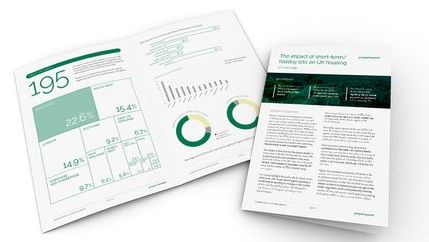
Licenses are bringing up standards
There were over 23,000 confirmed license applications between 1 October 2022 and 31 December 2023. More than 14,000 of those were validated, leaving around 9,000, incomplete or awaiting review.
Feedback from licensing authorities shows that many applications contain out-of-date evidence relating to gas, electrical and fire safety, which offers an opportunity to intervene and improve them to meet safety standards. This provides confidence that the regulations are actively improving the safety and quality of the short-term lets on offer.
Read the implementation update report →
The importance of complete documentation
STL hosts cannot operate until they have received a license. Currently, the processing time for new hosts is nine months, whilst the time for existing hosts is 12 months. The report details that delays are often due to incomplete documentation, highlighting the importance of ensuring applications are completely carefully.
Some local authorities are asking for legislation be amended to extend the statutory processing period to 12 months for new hosts and 18 months for existing hosts to better match the actual time it takes to assess a license application.
Standardisation and non-statutory guidance
Some hosts are dissatisfied with variations in licensing conditions and fees in different local authority areas. Councils can decide how they resource the scheme, and in some cases, applications are handled by existing housing or environmental health teams instead of dedicated licensing teams.
Propertymark agrees that this must be investigated to make sure that local authorities are making appropriate decisions about how to implement licensing, however, it is essential that councils have the flexibility to reflect local conditions and align with local policy.
Safety and Enforcement
The mechanism for reporting non-compliance is working effectively, which is expected to lead to higher compliance levels in the future. This will help ensure consistent standards across Scotland.
Some concerns about a lack of enforcement and data protection issues have been raised in the report. However, the Scottish Government has stated that it considers the amount of data disclosed during the registration process minimal and believes that the collaboration between licensing authorities and Police Scotland on compliance is effective.
Long-term renters and homeowners must come first
In general, this progress report shows that the scheme is working. It goes a long way in addressing the imbalance between the long-term and short-term rental sectors.
Although issues have been raised through the report, it is reassuring to see the Scottish Government has committed to creating an expert group to review and update guidance based on feedback and data collected since the scheme’s launch.
The impact of short-term/holiday lets on UK housing
This research piece presents an updated picture of the current market for short-term lets (STLs), looks at the broader costs/benefits to our communities, and potential solutions that could maximise the benefits while minimising the drawbacks as seen by property agents.







